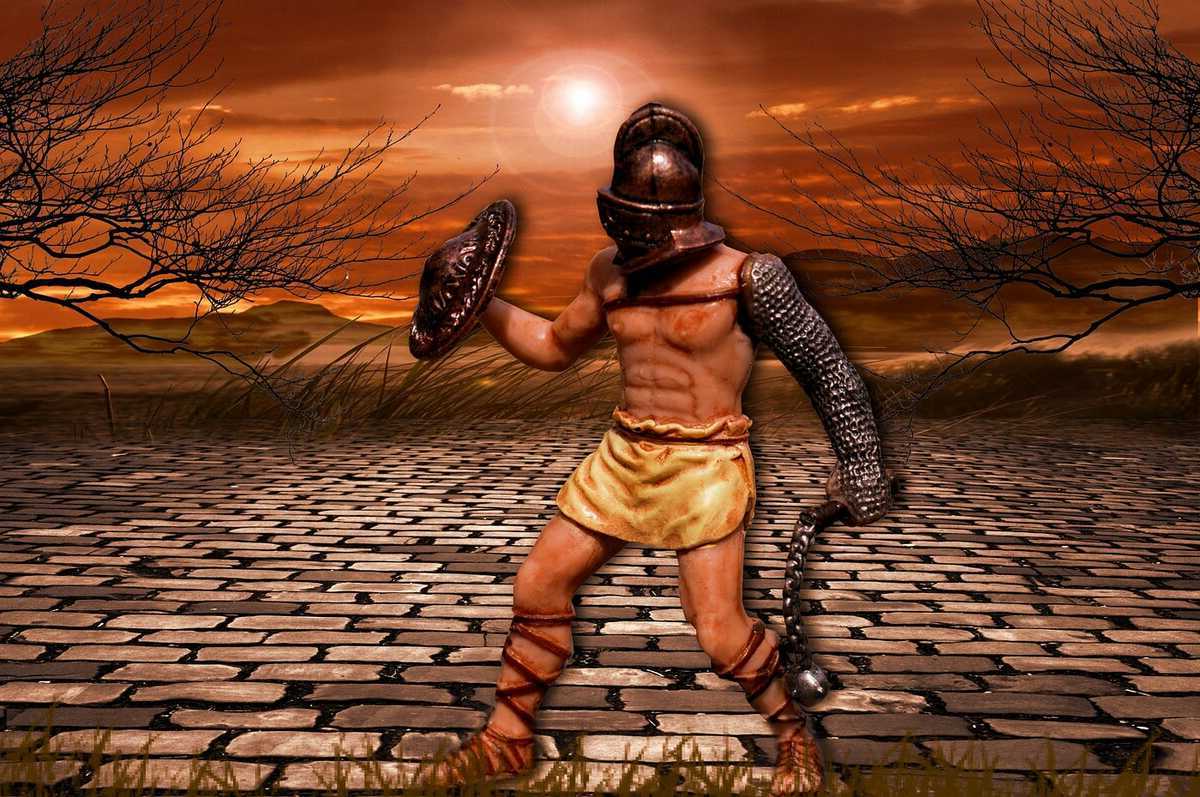
Roman gladiators, symbols of strength and courage, have captivated audiences for centuries, embodying the essence of ancient Roman culture. These warriors, who fought in grand arenas like the Colosseum, were not just fighters; they were entertainers in a society that valued spectacle and competition. From their rigorous training to the variety of their origins, gladiators' lives were complex and multifaceted. Beyond the Hollywood portrayal lies a rich history of these individuals, who ranged from slaves to volunteers, each with their own story. This post will unveil 15 facts about Roman gladiators and the games they participated in, shedding light on their daily lives, the types of gladiators, and the significance of their battles. Join us as we step back in time to explore the intriguing world of Roman gladiators.
What Were Roman Gladiators?
Roman gladiators were fighters in ancient Rome who battled against each other, wild animals, and condemned criminals, often to the death, for the entertainment of spectators. These battles took place in arenas throughout the Roman Empire, most notably in the Colosseum in Rome. Gladiators were usually slaves, prisoners of war, or condemned criminals, but sometimes, free men also volunteered, driven by the desire for fame, glory, or monetary reward.
The Origin of Gladiatorial Games
- Gladiatorial games originated as part of funeral rites during the Punic Wars, serving as a blood sacrifice to honor the dead. Over time, these games evolved from private ceremonies to public spectacles sponsored by politicians and emperors seeking to gain popularity and appease the masses.
Types of Gladiators
-
There were several types of gladiators, each with their own distinctive weapons and armor. For instance, Thracians wielded a curved sword and shield, while Murmillo fighters wore a helmet with a fish on its crest and fought with a gladius (short sword) and shield.
-
Retiarii were lightly armored, carrying a trident and a net, aiming to entangle their heavily armored opponents before going in for the kill.
Training and Life of a Gladiator
-
Gladiators underwent rigorous training at a ludus (gladiator school), where they learned how to fight, use weapons, and entertain crowds. Despite their harsh lives, successful gladiators could become celebrities, earn substantial sums, and even win their freedom.
-
Life expectancy for a gladiator was short, with many dying in their first fight. However, those who survived could fight as many as 20 to 30 matches in their career.
The Role of Gladiatorial Games in Society
-
Gladiatorial games served multiple societal roles, including entertainment, a means of displaying Roman military power, and a way to control the population by providing free bread and circuses.
-
Political tool: Emperors and politicians used the games to gain favor with the public, often offering more lavish and bloody spectacles to outdo their predecessors or rivals.
Famous Gladiators and Their Legacy
-
Spartacus is perhaps the most famous gladiator, known for leading a major slave revolt against the Roman Republic in 73-71 BC. His story has been romanticized in books, films, and television series, symbolizing the fight for freedom and justice.
-
Commodus, a Roman Emperor, famously participated in gladiatorial games himself, claiming numerous victories. However, historians believe these fights were rigged in his favor.
The End of Gladiatorial Games
-
Gladiatorial games began to decline in the late Roman Empire due to the rise of Christianity, which opposed the bloodshed, and the increasing cost of procuring gladiators and wild animals.
-
Final games: The last known gladiatorial games were held in 404 AD, after which they were officially banned by Emperor Honorius following the martyrdom of a Christian monk named Telemachus, who protested against a gladiatorial match in Rome.
Gladiators in Modern Culture
-
Gladiators have left a lasting legacy in modern culture, inspiring countless movies, books, and TV shows that explore their lives, battles, and the society they lived in.
-
Video games and board games often feature gladiator-themed gameplay, allowing players to experience the thrill of gladiatorial combat in a virtual arena.
-
Reenactments of gladiatorial games have become popular tourist attractions in Rome and other parts of Italy, offering a glimpse into the ancient world's most famous entertainment form.
-
Educational programs and historical documentaries continue to shed light on the lives of gladiators, their training, and the societal impact of the games, ensuring that the fascination with these ancient warriors endures.
A Final Glimpse into the Arena
Roman gladiators were more than just fighters; they were symbols of power, endurance, and spectacle in ancient Rome. From their diverse origins to the intricate rules governing their combats, these warriors captured the imagination of their contemporaries and continue to fascinate us today. Their lives, filled with both glory and tragedy, remind us of the complexities of human nature and the extremes of human society. Understanding their stories gives us a deeper insight into the cultural and social dynamics of ancient Rome. As we reflect on their legacy, let's appreciate the depth of history behind the gladiatorial games and the individuals who lived and died by the sword. Their tales, etched in history, continue to echo through time, offering a window into the past that is both enlightening and compelling.
Was this page helpful?
Our commitment to delivering trustworthy and engaging content is at the heart of what we do. Each fact on our site is contributed by real users like you, bringing a wealth of diverse insights and information. To ensure the highest standards of accuracy and reliability, our dedicated editors meticulously review each submission. This process guarantees that the facts we share are not only fascinating but also credible. Trust in our commitment to quality and authenticity as you explore and learn with us.
